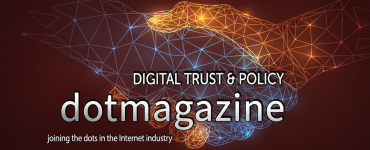eco Chair of the Board Süme: “The German federal government must make digital transformation a clear priority and align the Digital Strategy with top digital policy topics”
- IT experts: Germany is not a strongly competitive digital location
- One out of two are certain: Digitalisation has great potential to solve global challenges and crises
- Digital transformation has caught on in companies: Every second IT professional surveyed sees their company as highly advanced or even as a pioneer (18.5%)
In Germany, a large proportion of the population is very dissatisfied with the slow progress of digitalisation in many fields. As much as a quarter of those surveyed said that the topic of digital policy would have a major influence on their voting decision in the next federal state elections. The most important digital policy tasks at the national and federal state level are the development of digital public administration, enhanced general IT security, the rapid roll-out of Gigabit networks, and the strategic promotion of digital education. This was stated by the citizens surveyed, as well as by IT experts in a separate poll. These are the findings of the second edition of the digital policy barometer presented today. The barometer was developed by eco – Association of the Internet Industry together with the market and opinion research institute Civey and with the support of the Vodafone Institute for Society and Communication and the member companies Leaseweb and Huawei. The barometer provides a snapshot of the opinion of the overall population in Germany and the individual federal states, as well as the assessment of IT experts on strategic digital policy issues.
Experts and the public agree: modernisation of public administration, Gigabit roll-out and cybersecurity are the most important digital policy agenda items
According to the survey, 68 per cent of people in Germany are not satisfied with any aspect of digital policy. Dissatisfaction is particularly high in the fields of cybersecurity (only 2.4% satisfied), digital education (only 3.3% satisfied) and digital administration (4% satisfied). These values largely correspond to the responses acquired exactly one year ago (April 2021) before the federal election.
Not only the general population, but also IT experts rate Germany poorly as a digital location. More than 60 per cent of respondents to the Civey expert panel** rank Germany as uncompetitive in international comparison.
German citizens see the most urgent need for digital policy action in the areas of digital public administration (45%), cybersecurity (42.6%) and digital infrastructure (41.5%) (multiple answers were possible). These opinions correlate with the priorities of the IT experts.
eco Chair of the Board Süme: “The German federal government must make digital transformation a clear priority of its policy and align the Digital Strategy with top digital policy topics”
“Crises such as the ongoing Covid-19 pandemic and the threat of climate change, as well as the humanitarian and geopolitical crisis triggered by the Russian war of aggression on Ukraine, make it clear how important digital technologies and services now are for dealing with global challenges. We can only overcome these challenges if we think about digitalisation as a strategic tool in all areas. The German federal government must therefore make digital transformation a clear priority of its policy”, says eco Chair of the Board Oliver Süme. He calls on the German federal government to promptly clarify ambiguities regarding the distribution of digital policy responsibilities and competencies in the traffic light coalition: “The German federal government must now finally get down to defining and implementing relevant projects and plans and quickly present a consistent and cross-departmental Digital Strategy that defines clear and, above all, measurable goals”, says Süme. There is also a need for a swift clarification on the deployment of the digital budget set out in the coalition agreement.
“A clear focus of the Digital Strategy should be on strengthening general IT security, dealing with disinformation campaigns in accordance with the constitution, and approaches to digital sovereignty. First and foremost, this requires well-developed Gigabit networks and reliable digital infrastructures as well as high-performance and secure data centres as the foundation for digital transformation”, Süme continues.
The study shows that one of the most pressing needs seen for digital policy action is the field of digital education. “The best digital infrastructure and digital publication administration are of little value if people cannot use them confidently. Hence the loud call to strengthen digital skills in all age groups. The labour market must create targeted framework conditions so that those who drive the economy forward can also be digital pioneers”, says Marc Konarski, Head of the Vodafone Institute.
Digital transformation has caught on in companies: Every second IT professional sees their own company as highly advanced or even as a pioneer (18.5%)
While there is still a lot of catching up to do in the digital transformation of public administration and education, companies are already increasingly capitalising on digital solutions. More than 70 per cent of the IT experts surveyed said that digital transformation is of great importance to their company.
More than every second IT professional sees the company as highly advanced (36%) or even as a pioneer (18.5%).
“Digitalisation in Germany is still very much on the move and offers many companies great opportunities right now to position themselves in a future-proof and cost-efficient manner. Hybrid, complementary infrastructure models that take data protection and sovereignty into account are the key to success here”, says Marcus Busch, Managing Director of the cloud and hosting provider Leaseweb Deutschland.
The IT experts surveyed see by far the greatest potential for digital applications and technologies in the divisions of Administration & Accounting (50%), Personnel & HR (24%), and Procurement & Logistics (24%).
On the other hand, within companies there appears to be a lower level of awareness of the great potential of digitalisation for more sustainability. Only 18 per cent of respondents recognise potential in this sphere. In the view of Ingobert Veith, Vice President Public Policy at Huawei, this is an undervalued lever that more companies should elevate: “The federal government has recognised the potential for sustainable development through digitalisation. Now it is time to act quickly and accelerate the implementation of digital solutions! For example, with our ‘More Bits Less Watts’ strategy, we have set ourselves the goal of increasing the energy efficiency of our products 2.7 times over by 2025.”
For the realisation of digital transformation of business processes, the national and federal state governments should provide more information and targeted support to small and medium-sized enterprises in particular in order to utilise this major lever for a more sustainable economy.
“The digital policy barometer is an important seismograph on Germany as a digital location. It shows that we need to do more for the competitiveness of our digital location” says Janina Mütze, founder and CEO of Civey.
Further information and links
* The market and opinion research institute Civey surveyed 5,012 people between 08.04. and 26.04.2022 on behalf of eco. The results are representative of German residents aged 18 and over. The statistical error of the overall results is 2.5 percent.
**The market and opinion research institute Civey surveyed 750 people between 07.04. and 25.04.2022 on behalf of eco. The results are representative of professionals in IT/software development. The statistical error of the overall results is 6.1 percent.




